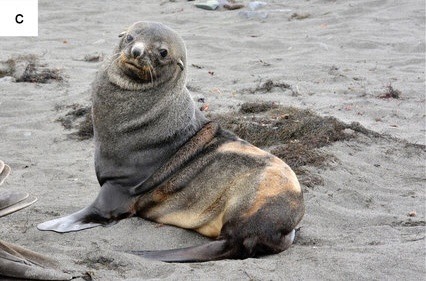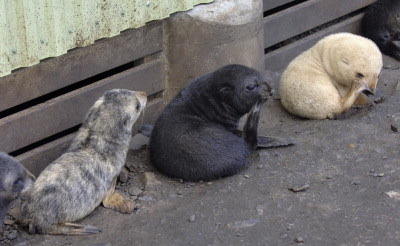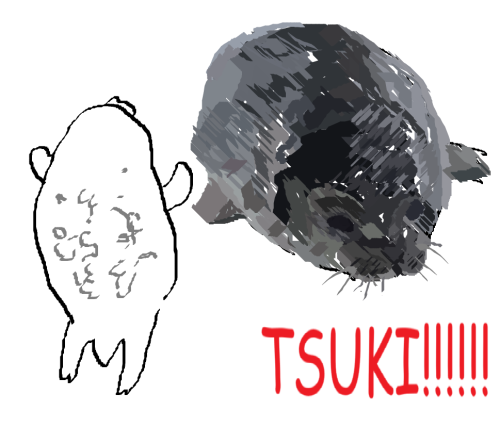Welcome To My Blubbery Blog!!! 🦭🦦🐋🐬🫧
welcome to my blubbery blog!!! 🦭🦦🐋🐬🫧
i’m currently a volunteer at an AZA accredited aquarium, i hope to study marine environmental science in the future and work in conservation and education! my primary interests are in northern fur seal biology and southern resident killer whale behaviour, but i love all marine mammals!
i support accredited* zoos and aquariums! i do however hope that we can move away from them in the future. i think that conversations about the ethics of captivity are important and should always be centered around the wellbeing of the captive animals. i encourage caution and use of critical thinking around both anti and pro captivity arguments. i’m always happy to answer any questions about the practices of AZA accredited zoos and aquariums!
*there are some accredited zoos and aquariums (such as seaworld) that i am heavily critical of, but it’s unfortunately a complicated issue that isn’t realistic to have black and white opinions on.
marine mammal rescue, conservation, and research organisations:
alaska sealife is center
vancouver aquarium marine mammal rescue society
center for whale research
SR3
marine mammal care center
More Posts from Fursealfan and Others

lets kissy mama
Begging you for some pinnipeds any pinnipeds please
Piebald Northern fur seal

Atypical colored Antarctic fur seal! With the orange, white, and grey they look calico.

Leucistic Antarctic fur seal

Interesting gang of Antarctic fur seal, one is leucistic and one almost looks brindle?

Leucistic southern elephant seal

Northern fur seal labeled as albino and partial albino (leucistic?) by some sources. NOAA says albino and they are experts.

Albino harbor seal

Albino ringed seal

Melanistic grey seal



Aerial photos of J-pod socialising
Photos by SR3/SEA (source)
Since many facilities already successfully keep bottlenose dolphins in sea pens, would it be that much harder to build one for killer whales? Just curious.
In theory no… it would just need to be quite a bit larger! In practice, though, it would be more difficult. Bottlenose are right at home in warm coastal tropical and subtropical waters, like Florida, Hawaii, and the Caribbean. These places also draw tourists year round, which means constant income. Cetaceans are expensive to house, and sea pens require constant upkeep to prevent them from succumbing to the inevitable wear and tear of tides and salt.
A sea pen for orcas would need to be in much colder waters (which is why Sea Shepherd’s proposal to build a pen in the Mediterranean was ridiculous), which don’t tend to draw as crowds quite as big as tropical destinations. So you have much larger animals that need much more space, much more food, therefore much more money… but much less income. And that’s not even getting into the issues of staffing.
Since I’m assuming you’re referring to the idea of a sea pen for the orcas currently in captivity, I’ll touch on that briefly. Cetaceans that have spent their whole lives in highly filtered environments tend to have weaker immune systems than those in natural ocean water—one of the valid complaints about artificial tank habitats in my opinion. They just aren’t getting much antigenic stimulation. Some still do okay transitioning to sea pens, but others don’t, and it’s hard to predict how they’ll respond. And for some of the older individuals, like Katina and Corky, the stress alone of such a massive change might be too much.
So yeah, in theory, nothing wrong with a sea pen! In practice though, might be more difficult than many make it out to be.


J63 is the first southern resident calf born in 2025 and likely the first calf of J40 “Suttles”!
unfortunately, southern resident calves have around a 50% mortality rate within their first year of life. a lot of this seems to be from a lack of food availability due to overfishing and disturbances from boats.
right now, under the trump administration, FWS and NOAA are trying to change the definition of “harm” in the endangered species act in a way that would weaken environmental protections. this will severely impact the already endangered and struggling southern resident population. calves like J63 will have even lower chance of survival if this proposed rule goes through. public comments to oppose this decision are open until may 19th.
more information + suggested talking points for public comments here
submit a public comment here
source: center for whale research

lets be muddy with mama
this picture is so beautiful to me, the colours brothers

Today's Seals Are: MAMA, LOOK!


Today's Seal Is: My Watchful Mama
tsuki oh how i love you

-
 andthebagsintheriver liked this · 1 month ago
andthebagsintheriver liked this · 1 month ago -
 dollfacemustdie liked this · 1 month ago
dollfacemustdie liked this · 1 month ago -
 fursealfan reblogged this · 1 month ago
fursealfan reblogged this · 1 month ago
